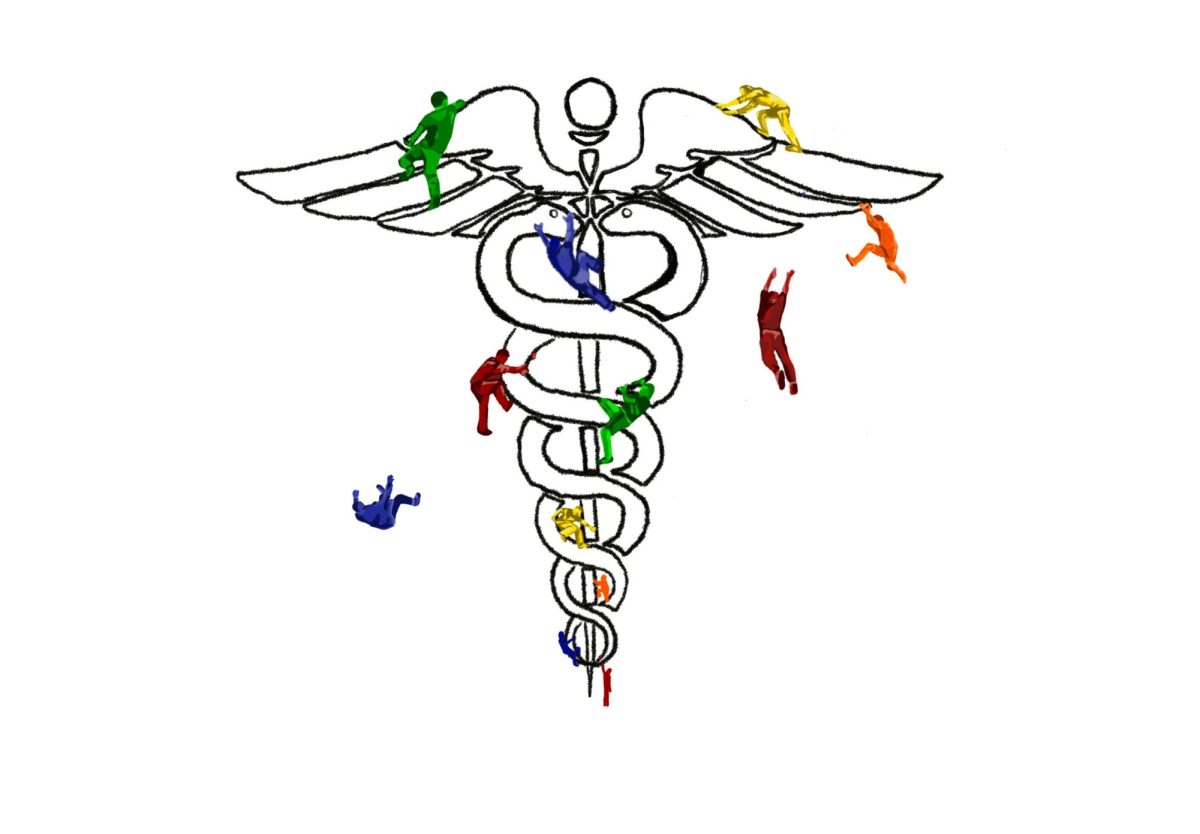Let’s talk about comedy, UChicago.
Imagine you’re at a stand-up show where the comedian in question is bombing on stage. There might be the odd chuckle or polite clap, but, for the most part, barely any of their jokes are landing. Imagine that you confront that comedian after their set about some of their more needlessly offensive stabs at humor and try to explain why they weren’t funny, at least to you. Imagine that they respond by either reminding you that they were “just jokes,” or by saying that it was your own sense of humor, or lack thereof, that precluded you from laughing.
That would be obstinate, but that’s exactly what happens when some students defend the more eyebrow-raising “jokes” made on this campus, either in person or online. Setting aside how students respect or disrespect each other in regards to race, class, religion, gender, or orientation, there seems to be a fundamental misunderstanding about what comedy is, and what it means to try to make people laugh. It’s really quite simple. Unless you’re a naturally witty person, crafting good comedy is about only two things: power and innovation.
Let’s start with power. Tom and Jerry is a comedic legend because 99 times out of a 100, the diminutive mouse Jerry gets the upper hand over the feline Tom. The show simply wouldn’t work the other way around. It’s the subversion of traditional power dynamics, and it is our intrinsic desire to root for underdogs that make these jokes work. It’s why we laugh at Wile E. Coyote’s pain at the hands of the Road Runner, or Elmer Fudd’s constant humiliation at those of Bugs Bunny. The “death by snu-snu” bit from Futurama’s third season still stands out as one of the show’s funniest moments, but the joke only works because it’s men who are on the receiving end of it. Flip the gender or sexual dynamics at play, and it quickly goes from hilarious to horrifying.
It’s why jokes about men made by women tend to raise fewer eyebrows than the other way around, or why black comedians tend to get more of a pass riffing on race than their white counterparts. Is that a double standard? Perhaps. But comedy does not operate within a vacuum. The concept of a double standard implies a baseline of fairness, and anyone suggesting that things are fair between various groups in society hasn’t been paying attention for the last 200 years. The broader societal context the comedian operates within can’t be divorced from their comedy, and when someone in a more dominant social group starts riffing on someone in a more subordinate one, it’s hard to toe the line between good humor and bullying.
This isn’t to suggest that it can’t be done, or that certain comedians can’t say certain things. Some of my favorite comedians are straight white men, I swear. But these comedians understand that there’s nothing inherently funny about trafficking in stereotypes about disadvantaged groups for an easy yuk, and that they have to go the extra mile to make such jokes really resonate. Whoever said that some jokes never get old simply hasn’t heard those jokes enough times.
Which brings us to innovation, and the effort needed to truly find it. It’s effort that makes the white Ralphie May or Bill Burr’s jokes about black people work, that allows the male Dylan Moran or Louis C.K. to stick jokes about women, that lets the straight Lewis Black or Patton Oswalt riff on the LGBTQ community. And it was effort that enabled the late master George Carlin to crack on, well, everyone. It’s all done with an awareness of their comparative power over their comedic subjects, with a commitment to their craft to innovate beyond tired clichés, and with the understanding that a truly good joke can make anyone laugh, even the ostensible butt of the joke.
A comedian reserves the right to be offensive, edgy, or risqué. You can be any, all, or none of these things and still be funny. But a good comedian knows that edginess is not a substitute for true humor, and that all the slurs and swears and stereotypes in the world cannot mask a truly unfunny joke. Dropping an N-bomb, wearing a stereotypical Halloween costume, or resurrecting a stereotype about someone’s culture isn’t unfunny because it’s offensive. It’s unfunny because it’s hackneyed, unoriginal, and lazy.
For all the complexity in its crafting, comedy is ultimately a simple thing. A dramatic or tragic story can cause any number of reactions in its audience, and its reception can live or die by any of those factors. Want to tell if your comedy is any good? It’s simple. Just see if your audience laughs. Or chuckles, or snorts, or makes that odd rasping sound Ernie makes on Sesame Street, or likes it on Facebook. If you don’t get that, then it’s back to the lab again.
If the intent is truly to make people laugh, then a true comedian takes the negative response and learns from it. But if all you want to do is spout off freely behind the veneer of comedy, then call yourself an agitator or a provocateur or a troll. More accurately, a bully. More bluntly, a dick. Just don’t call yourself funny. On behalf of people who have a lot riding on their ability to make other people laugh, you’re giving us a bad name.
The mantle of free speech is often invoked on campus to shield students from criticism of their more inflammatory actions, and the justification of “just joking” is often wielded as a weapon to redirect the backlash to the audience’s own comedic sensibilities. That doesn’t seem to be going away anytime soon. But as a wise man once said, if you have to explain a joke, there is no joke.
And if the only defense you can offer for a bad joke is that it technically isn’t illegal for you to make it, that’s probably the strongest indictment against you ever trying to make anyone laugh again.
Mickey Desruisseaux is a fourth-year in the College majoring in political science.







